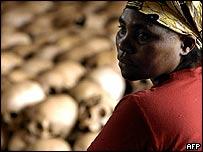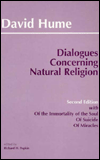Market Share and God's Kingdom
 In a recent interview with Belief.net, Brian McLaren said:
In a recent interview with Belief.net, Brian McLaren said:"In the last thirty years, there's been more crossover between denominations. People are exposed to a lot more theological diversity even though many of our church structures were set up to preserve a lot more theological uniformity...A lot of these very detailed doctrinal statements arose in an era where almost everybody went to church. You had a little bit of competition about who would get a bigger part of the market share, if I can say it that way. Churches tended to emphasize their distinctive features. You could tell somebody that they should leave their denomination and join yours because their denomination is wrong about X, Y, and Z. But that's not the situation that most of us live in anymore. Now, less than 20% of Americans attend church on an average Sunday...What we have to do is honor the church in all of its forms. We need the eastern Orthodox churches to be strong and we need the Roman Catholic Church to be healthy and we need all different kinds of churches because there's so much work to be done in our world. God wants to work through all these different forms of churches. We shouldn't say this is the only legitimate form, but we should just be happy with every group of people who are seeking to follow Christ."
How much energy has been wasted by Christians who, instead of assaulting hell's gates where ever they find them, have turned their bayonets on each other. Rob Bell, who has recently been the object of such assualts, wonderfully refers to such energies in this talk.
He notes that religion is often a crutch for miserable people who need a place to stand and promote their misery. A perfect
 example is the dialogue at amazon.com over Rob's book. You will find (at present count) 118 different reviews (not quite as many as "The Da Vinci Code" which has over 3000, but not too far behind best-sellers like "Purpose driven life"). These reviews are almost entirely polarized, and many of them are quite venomous.
example is the dialogue at amazon.com over Rob's book. You will find (at present count) 118 different reviews (not quite as many as "The Da Vinci Code" which has over 3000, but not too far behind best-sellers like "Purpose driven life"). These reviews are almost entirely polarized, and many of them are quite venomous.Take all the energy put into such reviews (of which I was one) and tell me that these Christians could not have done something else lasting, joy-filled, hopeful...even spectacular. Instead, we decided to spend time firing at one another. What a waste. Talking about who-God-is obviously has its place (I in fact have master's degree in the subject and find it quite valuable), but when the Body spends its time drawing distinctions, building walls, and seeking divorces from every other subset of believers over petty differences, we have failed our God.
In one talk, philosopher Ravi Zacharias pictured the Church as a crabby old man who lived on some run down property in the middle of a thriving city. When developers would come to ask to purchase his property, he would shake his fist and say that he had been on this lot when there was nothing else around, and no one was going to take it from him. For those who have ears...












